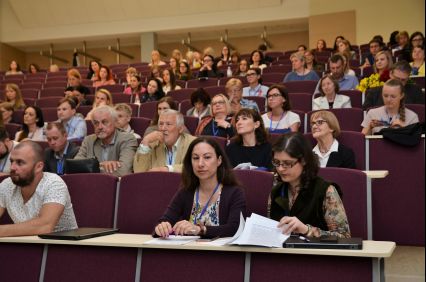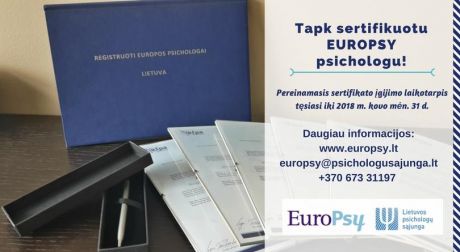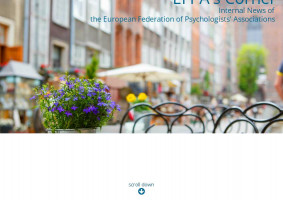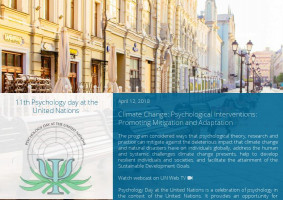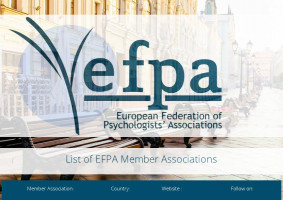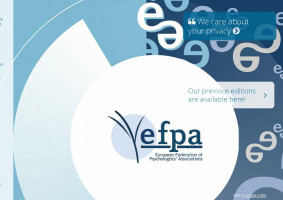Switzerland:
Set of Standards for Online Interventions

A set of standards for online interventions
The Federation of Swiss Psychologists (FSP) and the Swiss Association of psychotherapeutic Psychiatrists (FMPP) have issued a set of standards for online interventions
The standards have been compiled with the FSP working group for online interventions in collaboration with academic experts and experts in psychotherapy and counselling.
They were published in October 2017. The aim of these standards is as follows:
- To give specialists clear and specific reference points, both on a therapy, a technical and on a legal level.
- To make the general public, especially patients, aware of specialist treatments available.
There are four key areas: “Transparency”, “Barriers, Indications and Contraindications of Online Therapy”, “Confidentiality and Data Protection” and “Professional Ethics”.
The quality standards are now available in English.
Visit EFPA website for more info and to download the document

Lithuania:
Lithuanian psychology association is celebrating 60th anniversary

Lithuanian psychology association is celebrating 60th anniversary
The Lithuanian Psychology Association (LPA) is the biggest psychologists association in Lithuania, consisting of more than 600 individual members, including psychologists working in state institutions, in private practice or academic field.
There are members from different psychology fields, such as clinical, health, educational, organizational, forensic psychology, etc. LPA is an organization which actively promotes and coordinates the development of professional
psychological care in Lithuania, promotes the development of a system of professional development of psychologists, seeks to contribute to the formation of the concept of professional psychology in society.
LPA was established in 1958 by professor A. Gučas, so this year LPA is celebrating 60th anniversary. On 17-19th of May Lithuanian Psychological Congress, the biggest annual psychologists‘ event in Lithuania took place in Klaipėda, the port of Lithuania, where 60th anniversary of LPA was celebrated.
Congress May 2018 : "Psychology yesterday today tomorrow"
Lithuanian psychology association is highly thankful for E. Karayianni for an inspiring speech.
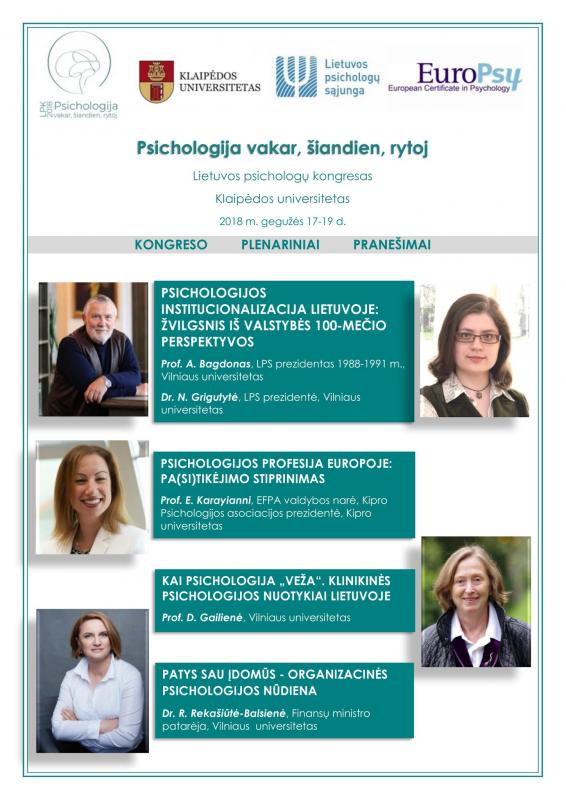
Miscellaneous:
- Austria : The Stanford Prison experiment
- Portugal : Psychologist National Day - 04 september
- United Kingdom : BPS hosts event for MPs on social media trolling at the Houses of Parliament

The Stanford Prison experiment
September 3, 2018, Vienna (Austria)
Film, lecture and discussion with Prof. Dr. Philip ZIMBARDO (Stanford University, USA) – organised by the Austrian Academy for Psychology.
The Stanford Prison experiment from 1971 is considered a landmark of Psychology. The experiment for researching human behaviour under conditions of captivity, especially under field conditions of real prison life, is in almost all textbooks for social psychology.
Philip Zimbardo, Professor of Psychology, led the experiment, which for ethical reasons had to be aborted prematurely.
More information about this event
Poster can be downloaded here

4th September approved as Psychologist National Day by the Portuguese Parliament
June 2018
The Portuguese Parliament has approved a law to create the Psychologist National Day on the 4th of September. That day corresponds to the day of the publication of the law that created the Portuguese Psychologists Association (ODP) in 2008.
Therefore, on the 4th of September 2018 the first official Psychologist National Day will be celebrated on the day of the 10th anniversary of the creation of the ODP. And from then, Psychology and Psychologists will be promoted in Portugal every year on the 4th of September.
Find here a link to the formal proposal that was approved by the Parliament .
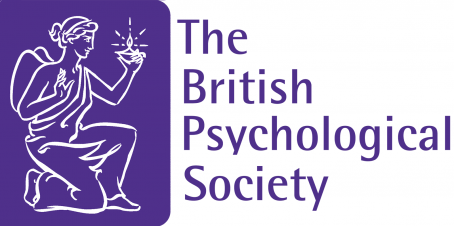
British Psychological Society hosts event for MPs on social media trolling at the Houses of Parliament
The appalling abuse MPs and members of the public are exposed to online was highlighted at the British Psychological Society’s fourth All Party Parliamentary Group (APPG) for Psychology meeting held at the Houses of Parliament in June.
Scottish National Party MP for East Kilbride, Strathaven and Lesmahagow Dr Lisa Cameron and Chair of the APPG, who has experienced trolling first hand, opened the event attended by House of Lords peers, MPs, professional organisations and charities.
Professor Catriona Morrison and Dr Shazia Akhtar (University of Bradford) were invited to the APPG for Psychology to discuss their research in this area. They surveyed 181 MPs both male and female – 100 per cent of whom said they had experienced trolling either daily or weekly The surprising finding was that male MPs reported more abuse than women. Although men mainly face defamatory comments which may cause reputational damage while females are exposed to more threats of sexual, racial and violent abuse.
Morrison and Akhtar also found a split in the response to and effects of this abuse – male MPs were more likely to respond to online trolls and were not affected much, psychologically or emotionally, by the abuse. Female MPs in the other hand will usually ignore abuse and trolls themselves and tend to be more psychologically and emotionally affected by it.
You can read an interview with Professor Morrison in The Psychologist.
Founded in 2017 the APPG for Psychology is a cross-party group of members of parliament from both the House of Commons and the House of Lords.
The BPS acts as the secretariat and the focus is on raising awareness amongst parliamentarians and policymakers of the importance and relevance of psychology, combining research and best practice briefings to ensure that MPs have access to a psychological, evidence-based approach to policy development.
To do this the APPG for Psychology calls on the experience and expertise of both psychologists and experts by experience to bring psychology to the heart of Westminster and to ensure that the psychological evidence base is integral to policy development.
Dr Lisa Morrison-Coulthard, BPS Policy Director, said: "Recent political events and shifting social trends have demonstrated that psychology is more relevant now than ever. Sustaining increasingly-stretched public services is a challenge, and we are all acutely aware of the ever-increasing demand on services as a result of large and persistent health challenges like dementia, obesity and mental health. At the same time, concerning psychological trends need a concerted response: levels of social trust are low, inequality is rising and huge political upheavals, like Brexit, have left societies divided. The evidence, interventions and frameworks of understanding that psychology provides can help people and policymakers respond to challenges, make sense of social trends and understand people better. The APPG on psychology is uniquely placed to come up with responses to these challenges, to ultimately enhance people’s lives and communities as well as our wider society as a whole."
The next meeting of the APPG for Psychology will take place in July and will bring together experts on the topic of mental health in criminal justice system.
For more information about the APPG in Psychology visit the BPS website.
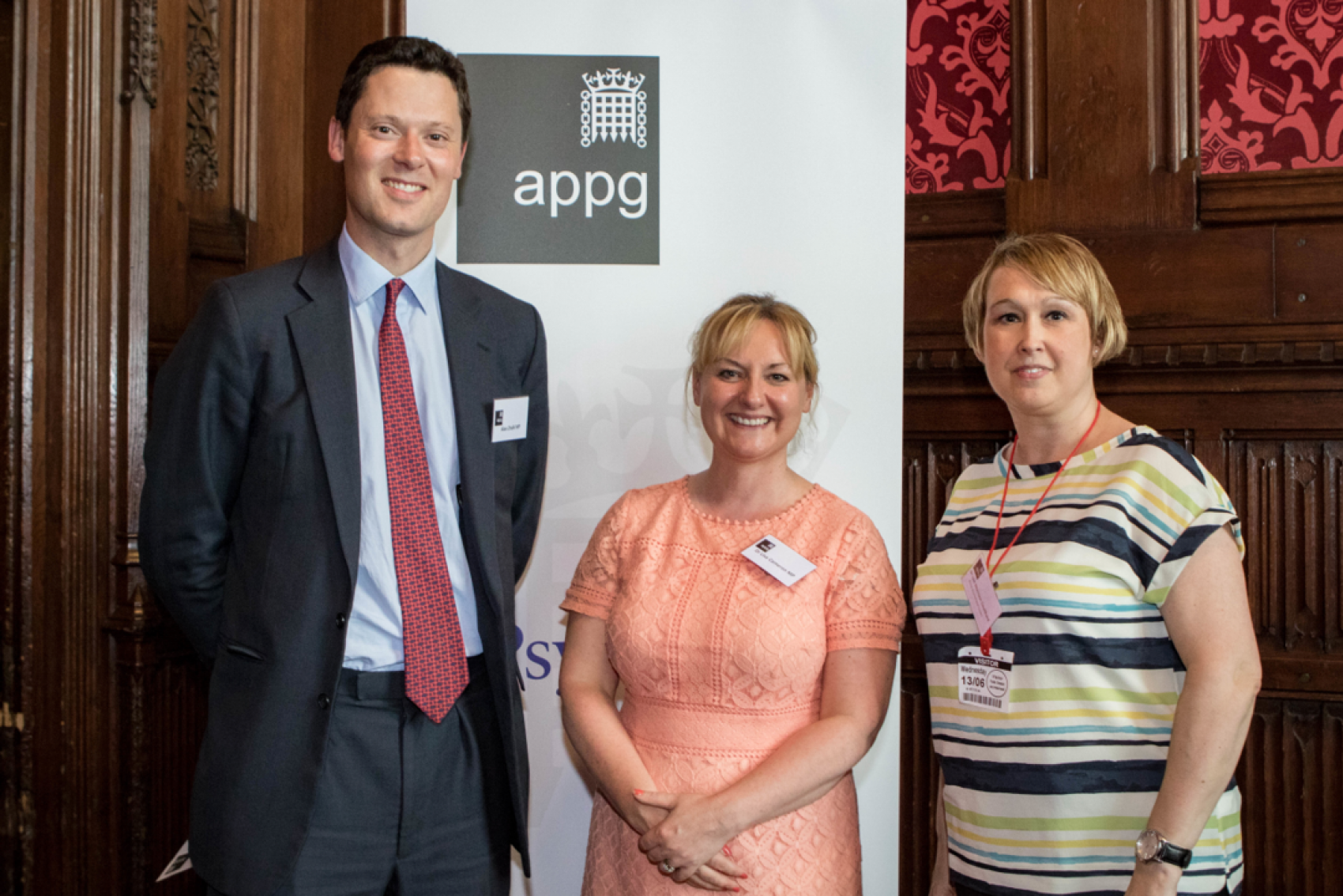
Belgium:
- The New Law on Mental Health Professions
- First reimbursement proposal for clinical psychological care
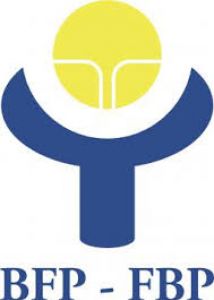
First Reimbursement Proposal for Clinical Psychological Care
June 2018
After the recent recognition of the clinical psychologist as an independent health profession, the Belgian minister of health announced recently the first initiative to reimburse clinical psychologists in the primary care.
Although this is historical, since it is the first time that such a proposal is made for clinical psychologists, the content of the proposal is controversial.
Due to budget limits (there is only a yearly budget of 22,5 million euro available) psychologists are proposed to work at a fixed fee of 45 € a session (the average fee now is 60 - 65 €), a referral by a General Practitioner or a psychiatrist is obligatory and psychologists need to contract with a local hospital installed in a network of mental health care.
The Belgian Federation of Psychologists is sceptical. "Few psychologists will be tempted to lower their current fee rate, which already isn't viable for a fulltime independant practice. The obligatory referral by a medical doctor is an extra threshold to consult clinical psychologists and the contract with hospitals remains obscure and totally in contradiction with the so - hard needed reform for mental health care in our country", says Koen Lowet, managing director for the Belgian Federation.
_w426_h282_1.jpg)
_w426_h284_1.jpg)
